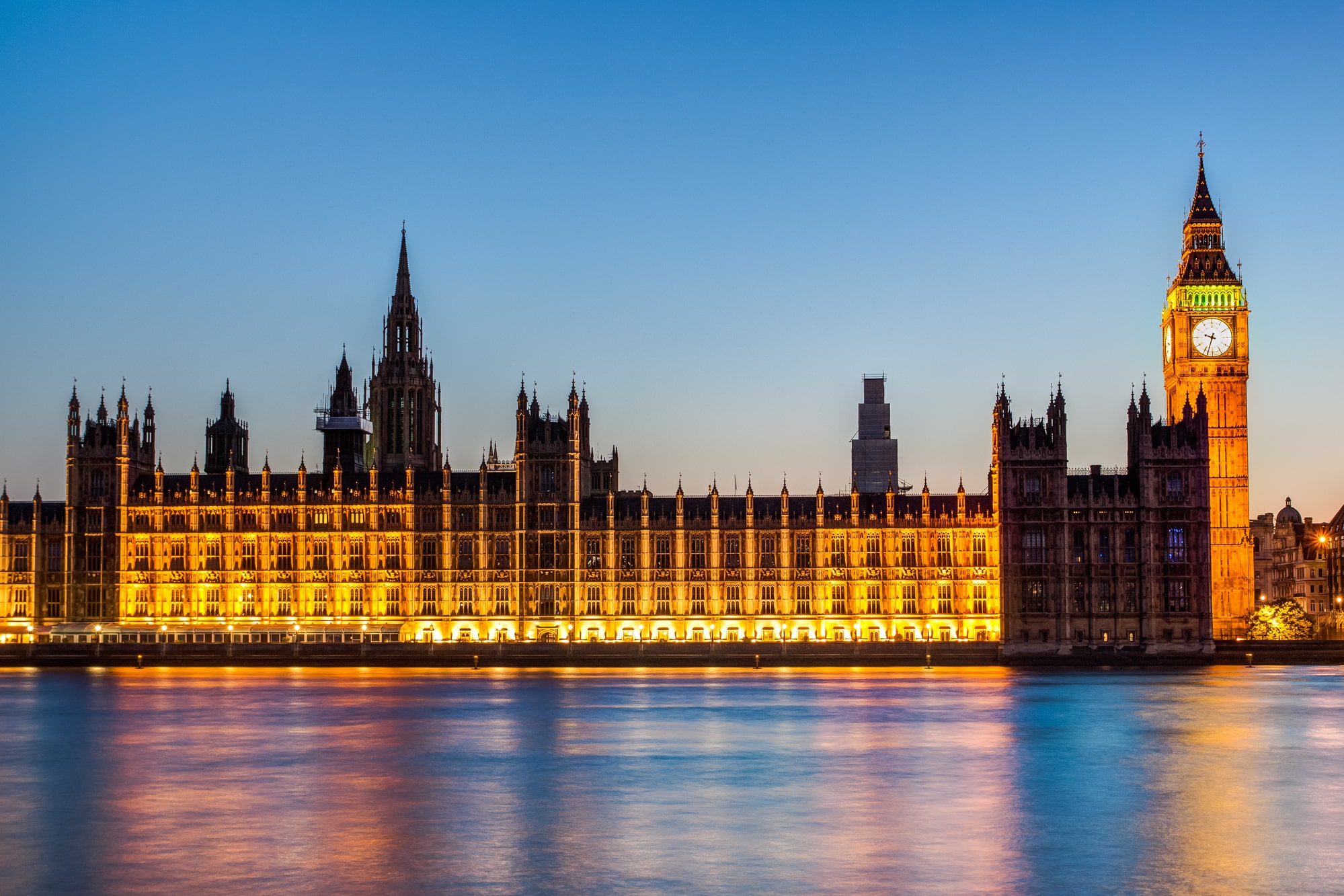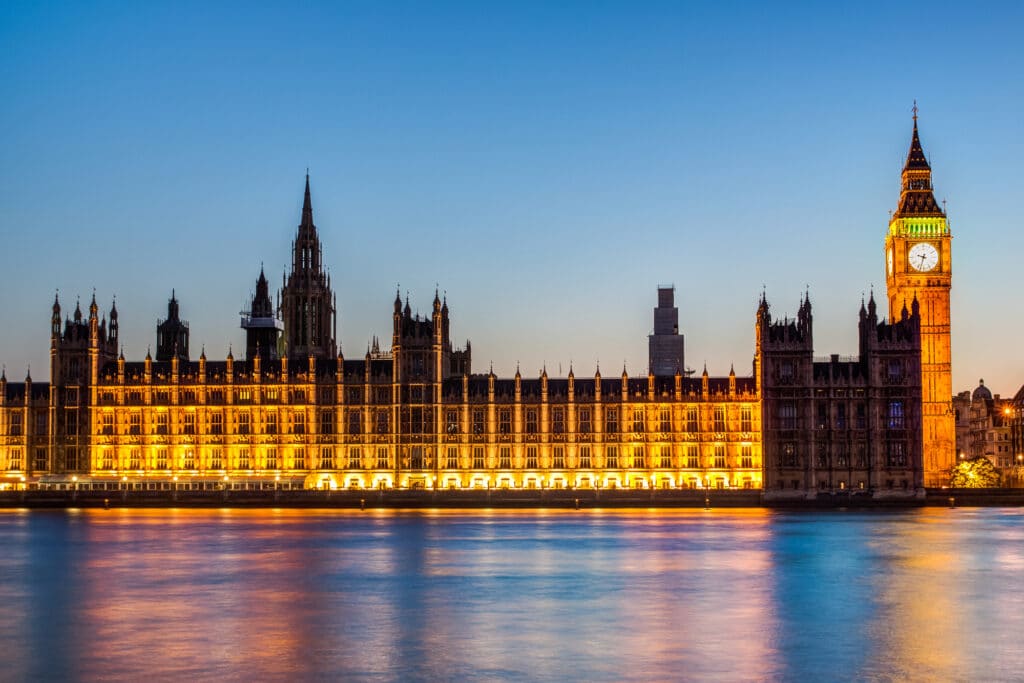What are the immediate priorities for ethics & compliance professionals coming out of the Covid crisis?
Articles | read time: 6 min
Published: 3 November 2021

Baroness Kingsmill hosted the first of our long-running ethics debate series at the House of Lords after the Covid-19 hiatus. Rahul Saxena, former Chief Ethics and Compliance Officer, BP, kicked off the discussion. In his opening remarks, Rahul covered three themes which he believes are the principal priorities:
1. Resetting values and ethics
The first was the need to ‘re-set’ values and ethics as organisations come out of the crisis. He set out why he had become a “convert” to a values-led approach and how his thinking had been shaped by experiences in previous companies. In his view, a strong focus on compliance can allow an organisation to develop a culture that is not adequately alert to ethical risks and potential reputational impact. A values-led approach should ensure the ‘right’ ethical behaviours, while a compliance-led approach can never reach everyone or cover every decision that needs to be made. Coming out of lockdown, he argued, was a key moment to reassert values to bring all employees into a good cultural mindset. For many organisations, this period will present many challenges, so coalescence around strong company values will be key.
2. Responding to the growing importance of ESG
The second topic that Rahul spoke about was the rising importance of ESG and the broad spectrum of ESG considerations, including carbon reduction, diversity and inclusion, corporate governance and human capital. He noted that ESG has dominated the business press during the Covid crisis, stating that this prominence seems permanent and almost certain to be an important element of the post lockdown world. As such, ESG is increasingly regarded as mainstream and is now a key consideration for organisations when looking to access capital. It has therefore become the domain of both the CEO and CFO. Rahul commented on the number of organisations making a ‘net zero’ commitment as an example and the possible challenges that this, and other ESG commitments, will raise for ethics and compliance teams. However Rahul stated that he would caution against a dramatic swing towards ESG issues by ethics and compliance professionals. He felt that the core topics which focus on white collar crime are so important that ESG might risk diverting attention. He described himself as a ‘meat and potatoes’ person who would see his key role coming out of the pandemic as focusing on his previous priorities, rather than trying to move onto a ‘new diet’ with a range of new challenges coming from ESG.
3. Making the business case for ethics and compliance
The third topic was the business case for the ethics and compliance function. Rahul noted the importance for the function to continuously be seen by senior leadership and to asserting and demonstrating its value to the organisation. Metrics are key to this. Rahul noted that many of the dilemmas for organisations, as we come out of lockdown, have strong ethical, compliance and reputational risks attached and therefore we should be confident of our value within organisations. He touched on the importance of good speak-up systems especially as we continue to work remotely and in hybrid structures. He noted the challenges for whistleblowers and the extraordinary stories of how whistleblowers have been treated at both Wirecard and the BBC. He used these examples to show how organisations with strong brands can be badly damaged by poor speak-up systems and by investigations that go wrong.
Is it time for a wider role for ethics and compliance teams linked to ESG?
The debate question asked was whether ethics and compliance professionals should be focusing on their previous roles as we come out of lockdown, or whether now is the time to change diet and to focus on a wider set of ESG related topics.
The room split on the vote, with most people advocating a wider role for ethics and compliance professionals, but with a substantial minority stating that a focus on the ‘core’ role was more important coming out of lockdown.
Key points from the debate
Participants in the debate were asked to say why they had voted as they did and to give insights into the key priorities coming out of lockdown. A number of interesting points came out of the debate:
1. Embedding ethics in a hybrid working model
The sharing and instilling of values when remote working, particularly with new recruits, is challenging. Hybrid working is a challenge for everyone, but ethics and compliance professionals need face-to-face contact and need to be on the ground, to meet colleagues to properly find out what is happening and to be able to respond adequately to risks identified.
2. Updating the code of conduct post Covid
Some participants noted that the re-set is pushing them to update their codes of conduct and/or values statements. This is linked for some to hybrid working and the need to rethink how the company is organised and how it works in practice. New ways of working reinforce the importance of local ethics/compliance champions also the need to refresh training. That said, the improvement in remote working technology and a much-increased frequency of meeting online were noted in one instance as having a very positive effect on team communication and bonding.
3. Growing demand for ESG information
One guest commented that a re-set was not yet needed given that investors in his sector were not really asking demanding questions about ESG, despite all of the public interest in the topic. This was challenged by other participants who noted a significant shift in investor interest in ESG and that this was percolating through to the ethics and compliance team.
4. The danger of greenwashing
One particular challenge noted in the debate was the risk that ‘net zero’ and other commitments are being made without sufficient thought given to how these will be achieved and how compliance will be demonstrated. The link with sustainability colleagues and investor relations colleagues will need to be stronger to ensure that there is a not a ‘rhetoric versus reality’ mismatch.
5. Human rights and ESG
One participant noted that corruption and human rights were the most important ESG topics for ethics and compliance professionals. These topics are more likely to need a response from the ethics and compliance team than the sustainability issues (which have other professionals more likely to be involved).
A smaller company raised the question of practicality. Where resources are limited, the Ethics and Compliance team has to prioritise key issues, probably those which, if ignored, risk landing the business in the most trouble. Sticking to the topics already on the agenda before the Covid crisis was therefore key to this company.
GoodCorporation’s View
Overall, it was clear from the debate that there is a very diverse set of factors driving companies in different directions as we come out of the pandemic. The overarching theme is one of a very heavy workload and much to do. For some companies this reinforces the need to protect the organisation from white collar crime issues which have become possibly more complex and harder to manage during the pandemic. In practice risks have increased because of a lack of visibility of the team amongst colleagues combined with the risks presented by many employees working remotely.
For other organisations, it is clear there is a real adjustment going on in terms of the topics covered by ethics and compliance professionals and the ways of working. At the most radical end, some organisations are bringing together a wide range of ethics, compliance and sustainability topics and asking ethics and compliance professionals to see these all as ‘risks’ that need to be understood and managed. At the other end there are organisations that are struggling to simply get back on top of the ‘day job’ that existed before the pandemic hit.
Our view is that there is no ‘one size fits all’ model for ethics and compliance teams and their responsibilities as we come out of the pandemic. The reality depends on the sector, the size, the geography, the structure of the existing corporate functions and the distribution of responsibilities currently in the organisation. In all cases the move out of the pandemic does present an opportunity to re-assert the role of ethics and compliance and probably to re-communicate codes of conduct and refresh these.
Over time it is highly likely that the emerging ESG issues will move into areas of soft law and eventually into hard law. Therefore ethics and compliance professionals will eventually be forced to play a role in managing these risks as part of a wider portfolio. As Rahul said, if you are looking for a job, it’s a good time to be an ethics and compliance professional!
work with us
